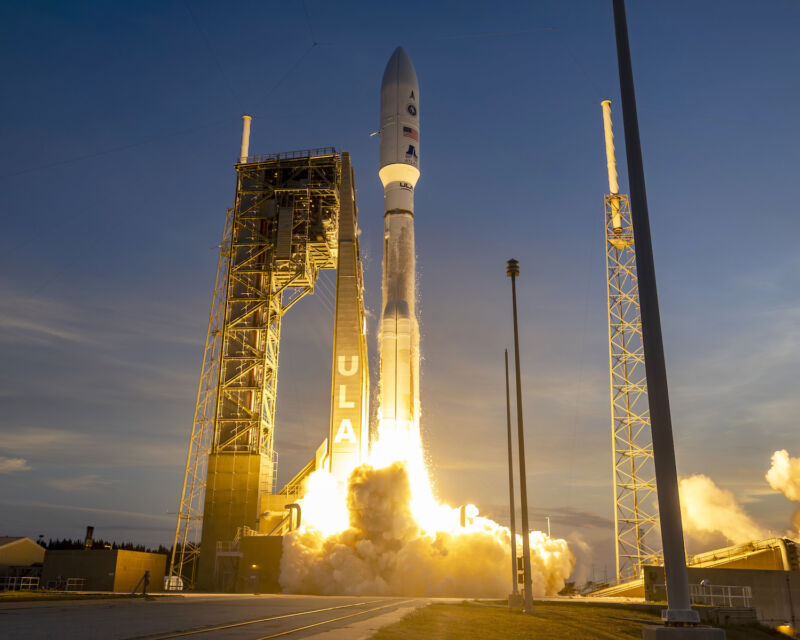With a landmark launch, the Pentagon is finally free of Russian rocket engines
It's been a decade-long effort to end the US military's reliance on the RD-180 engine.

Enlarge / Liftoff of ULA's Atlas V rocket on the US Space Force's USSF-51 mission. (credit: United Launch Alliance)
United Launch Alliance delivered a classified US military payload to orbit Tuesday for the last time with an Atlas V rocket, ending the Pentagon's use of Russian rocket engines as national security missions transition to all-American launchers.
The Atlas V rocket lifted off from Cape Canaveral Space Force Station in Florida at 6:45 am EDT (10:45 UTC) Tuesday, propelled by a Russian-made RD-180 engine and five strap-on solid-fueled boosters in its most powerful configuration. This was the 101st launch of an Atlas V rocket since its debut in 2002, and the 58th and final Atlas V mission with a US national security payload since 2007.
The US Space Force's Space Systems Command confirmed a successful conclusion to the mission, code-named USSF-51, on Tuesday afternoon. The rocket's Centaur upper stage released the top secret USSF-51 payload about seven hours after liftoff, likely in a high-altitude geostationary orbit over the equator. The military did not publicize the exact specifications of the rocket's target orbit.
